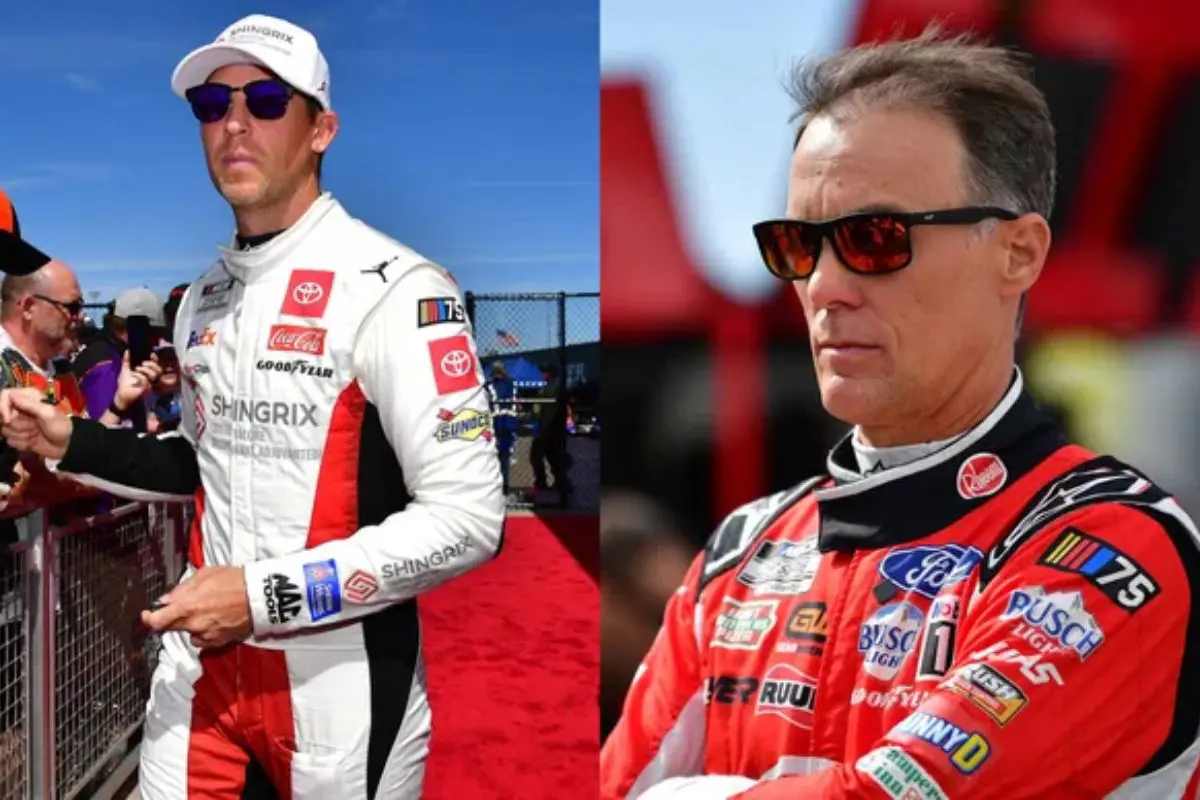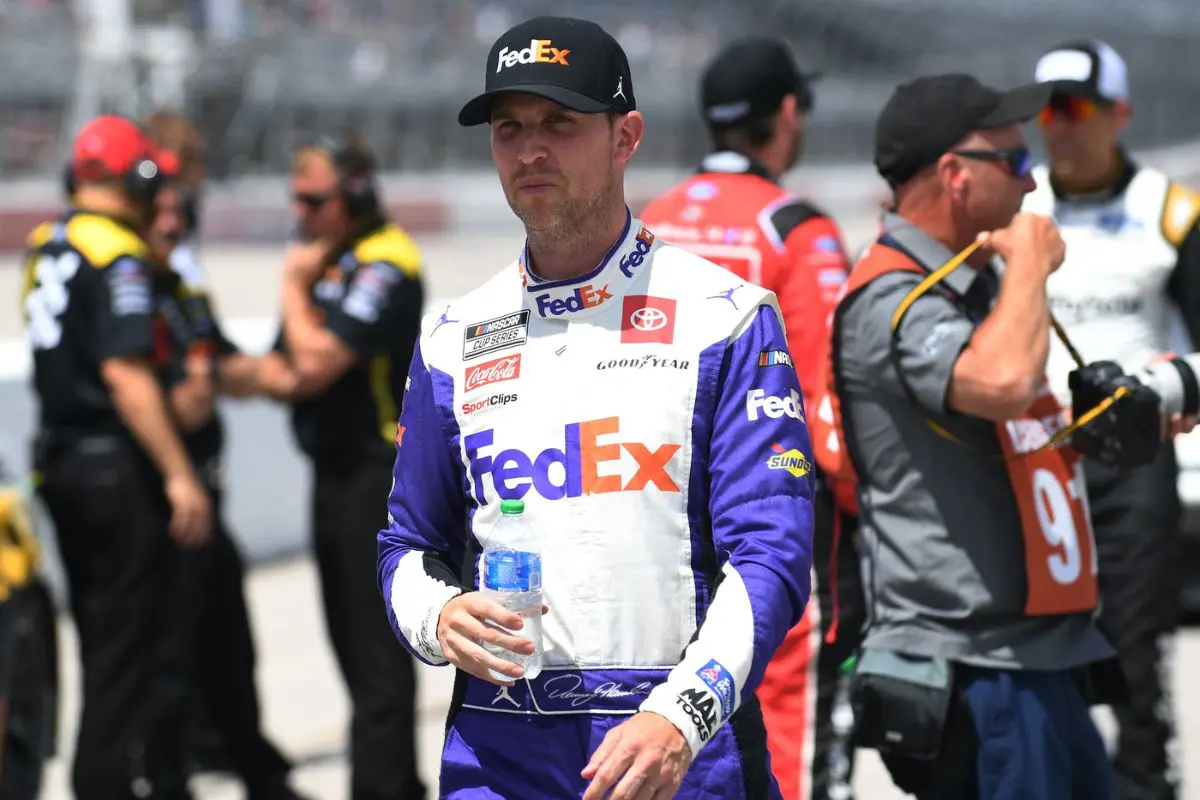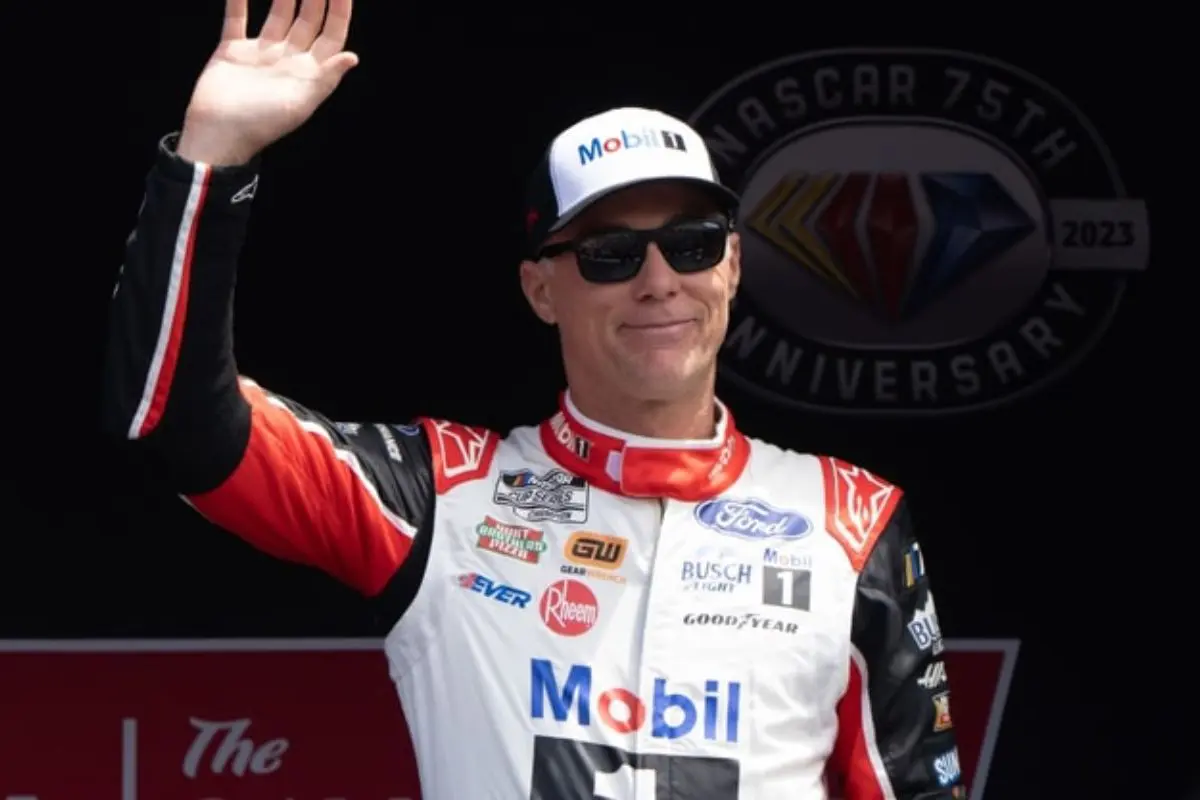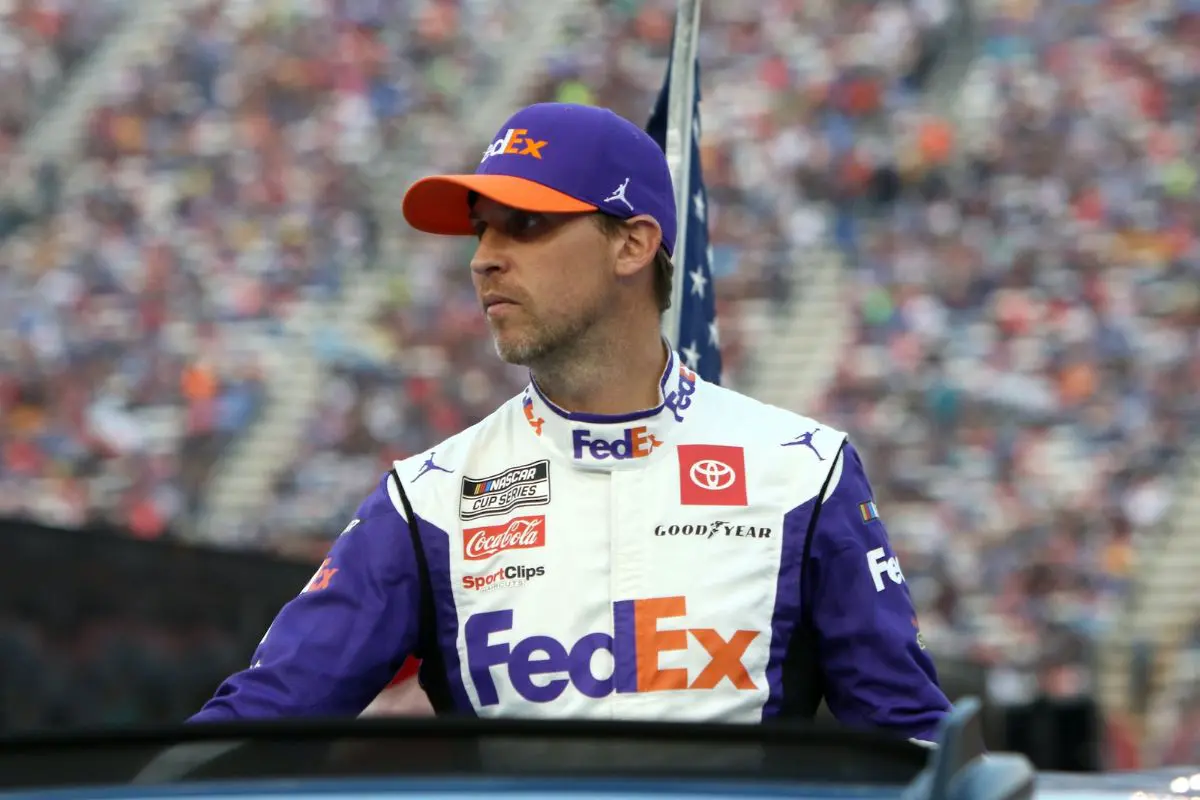Kevin Harvick Slams Denny Hamlin: In the aftermath of the Atlanta race, Kevin Harvick‘s scathing critique of Denny Hamlin‘s conservative strategy highlights a broader conversation about risk versus caution in high-stakes racing. Harvick’s assertion that Hamlin’s approach was a “complete failure” raises questions about the implications of playing it safe in a sport where aggressive tactics often yield greater rewards. As Hamlin grapples with the fallout of his performance and the challenges ahead in the playoffs, one must consider whether his strategy was a momentary lapse or indicative of a deeper trend among competitors facing mounting strain.
Key Highlights
- Kevin Harvick criticized Denny Hamlin’s Atlanta strategy as overly cautious, labeling it a “complete failure” in competitive terms.
- Hamlin’s risk-averse approach led to a disappointing P24 finish, resulting in no playoff points earned.
- Harvick noted that Hamlin’s strategy diverged from his strengths in superspeedway racing, affecting overall performance.
- The lack of aggressive driving left Hamlin just two points above the playoff cut line, raising elimination concerns.
- Harvick emphasized that successful drivers must seize opportunities rather than race with fear or trepidation.
Denny Hamlin’s Playoff Challenges
As the playoffs commence, Denny Hamlin faces considerable challenges stemming from an early powertrain issue that relegated him to the back of the grid for the Quaker State 400. This unforeseen setback not only disrupts his racing strategy but also casts a long shadow over his championship aspirations.
Being forced to start from a disadvantaged position notably diminishes his ability to accumulate essential points, placing him in a precarious situation as he navigates the demanding playoff landscape.
While Hamlin currently occupies a relatively safe position in the standings, the distance from the top of the points table is disheartening. For a driver who has dedicated two decades to the pursuit of a Cup Series championship, the anxiety of watching a potential victory slip away is particularly agonizing.
The stakes are raised further by the looming threat of mechanical failure during critical moments of the race. This uncertainty can inhibit a driver’s performance, as concerns over the engine’s integrity may lead to overly cautious driving or miscalculations in strategy.
Consequently, Hamlin’s playoff expedition is fraught with both external and internal challenges, creating a complex environment where every decision carries substantial weight. As he battles through the playoffs, Hamlin must not only contend with competitors but also reconcile his own anxieties, making this phase of his career both a key and intimidating chapter.
Denny Hamlin’s Atlanta Strategy
Despite entering the race with a comparable starting position to competitors like Martin Truex Jr. and Ty Gibbs, Denny Hamlin’s strategy at Atlanta ultimately faltered, leaving him without any playoff points during the stages.
Faced with the knowledge of his car’s previous issues, Hamlin adopted a cautious approach, which proved detrimental. This decision not only affected his performance but also raised questions about the wisdom of his team’s strategy.
The consequences of a conservative race plan became glaringly evident as Hamlin finished in P24, a position that yielded no points and markedly hampered his playoff aspirations. Critics, including Kevin Harvick, began to scrutinize the rationale behind keeping Hamlin in the race when the results were so disheartening.
Key aspects of Hamlin’s strategy that contributed to its failure include:
- Risk Aversion: A hesitance to push the car, fearing mechanical failure, led to a lack of competitive aggression.
- Missed Opportunities: By not capitalizing on the race’s dynamics, he fell behind competitors who took calculated risks.
- Team Dynamics: Questions arose regarding JGR’s decision-making process, as the team appeared unprepared to adapt to race conditions.
Kevin Harvick’s Critique
Criticism of Denny Hamlin’s Atlanta strategy has been vocal, particularly from former NASCAR driver Kevin Harvick. Harvick’s appraisal was unequivocal, labeling Hamlin’s approach as “a complete failure.” He emphasized that the execution diverged sharply from Hamlin’s established strengths, particularly in superspeedway racing.
“Whatever it was, it’s a complete failure.“ – harvick
Harvick noted, “When you look at the 11 strategies, it goes totally against everything that they are,” highlighting the disconnect between Hamlin’s potential and his actual performance.
Harvick’s analysis extended to the consequences of this flawed strategy. He pointed out that Hamlin and his team failed to secure any stage points, exacerbating their precarious position, as they were left merely two points above the cut line. This tactical misstep, according to Harvick, stemmed from a mindset of fear.
“To me, that looked like a scared strategy,” he stated, indicating that the hesitance to engage with other competitors ultimately hindered Hamlin’s chances of advancing.
“To me, that looked like a scared strategy. Everything about it just looked like a totally scared strategy to get up there and mix it up.” – Harvick
Furthermore, Harvick argued that a successful driver cannot afford to race with trepidation. By adopting a conservative approach, Hamlin effectively stymied his own ability to capitalize on opportunities, a sentiment that resonates deeply in the competitive domain of NASCAR.
Hamlin’s Wreck at Atlanta
Experiencing a considerable setback, Denny Hamlin’s race at Atlanta took a turn for the worse with just 14 laps remaining when a collision initiated by Ross Chastain sent the No. 11 car into a spin. The incident not only blemished Hamlin’s performance but also carried notable implications for his playoff standings, as he finished the race in 24th place without accruing any stage points.
This wreck unfolded on the front stretch, a location notorious for its visibility and impact on a driver’s momentum. Fortunately, no other vehicles had to retire due to the crash, but the ramifications for Hamlin were clear and troubling. His strategy, which he later discussed on his podcast, was self-imposed, forcing him to confront the consequences of his decisions head-on.
- The weight of missed opportunities loomed heavily.
- The specter of playoff elimination became increasingly real.
- The frustration of a self-inflicted setback gnawed at his confidence.
As he now finds himself teetering on the edge of playoff rivalry, the wreck at Atlanta serves as a glaring reminder of the fine line between strategy and calamity. His willingness to own the result emphasizes the intense stakes and unpredictable nature of NASCAR racing, where every lap can pivot a driver’s fate.
Hamlin’s Additional Pressures
Amid the intense focus of the playoffs, Denny Hamlin faces extra demands that extend beyond the racetrack. As the co-owner of 23XI Racing, alongside NBA icon Michael Jordan, Hamlin grapples with urgent concerns regarding the team’s charter deal. This multifaceted burden comes at a crucial crossroad, where performance on the track is paramount for both his personal aspirations and the viability of his team.
The stakes are particularly high during the playoffs, a period that traditionally calls for steadfast concentration and peak performance. However, with unresolved business matters swirling in his mind, Hamlin’s ability to maintain top focus may be compromised. The psychological strain associated with negotiating a charter deal can detract from the mental clarity required to excel in high-stress racing situations.
Moreover, the contrast of his competitive drive against the backdrop of these extra pressures raises questions about his comprehensive championship prospects. Can Hamlin effectively compartmentalize these challenges while aiming for a coveted Cup Series Championship? The interplay between operational responsibilities and competitive demands could prove detrimental if not managed skillfully.
As the playoffs progress, Hamlin’s resilience and tactical insight will be tested. The ability to balance these competing interests will ultimately dictate not only his performance on the track but the future path of his racing enterprise as well.
News in Brief: Kevin Harvick Slams Denny Hamlin
The scrutiny of Denny Hamlin’s strategy during the Atlanta race highlights the inherent risks associated with competitive racing. Kevin Harvick’s critique emphasizes the necessity for drivers to adopt aggressive tactics to secure crucial stage points and improve playoff positioning. Hamlin’s conservative approach ultimately hindered his performance, reflecting the broader challenges faced by drivers in high-stakes scenarios. Embracing calculated risks remains fundamental for success in the fiercely competitive landscape of NASCAR.
ALSO READ: Kevin Harvick’s Reaction to Kyle Busch’s Elimination: How RCR’s Late Push Fell Short




